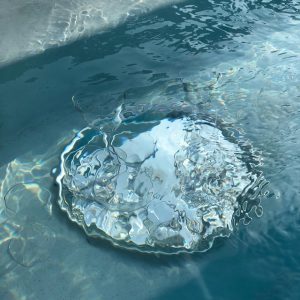What Is Over-The-Ground Flooding and What to Do About It?
 Rainfall is pretty common in Glendale, so the general puddle or two have never been an issue. There are also minimal chances of flooding, which helps you feel a little relaxed about your housing situation. However, lack of flooding won’t always protect you from water damage due to natural phenomena.
Rainfall is pretty common in Glendale, so the general puddle or two have never been an issue. There are also minimal chances of flooding, which helps you feel a little relaxed about your housing situation. However, lack of flooding won’t always protect you from water damage due to natural phenomena.
Glendale is a beautiful city but, with the rainy season lasting eight months on average, water becomes a usual part of life and barely registers as something to worry about. This complacency can be dangerous because you are still at risk of over-the-ground flooding.
What Is Over-The-Ground Flooding?
Over-the-ground flooding or groundwater flooding happens when the water levels start rising above the ground during rainfall or thunderstorms. While the water levels aren’t high enough to become concerning, they can slowly damage your house.
Causes of Over-The-Ground Flooding
Over-the-ground flooding happens due to several reasons, but the major cause is soil reaching water saturation. The ground can absorb and retain specific levels of water. However, if the amount of water exceeds the amount they can absorb, the water level starts rising.
Since Glendale receives ample rainfall throughout the year, there are modest chances of over-the-ground flooding, despite an excellent drainage system. Although the matter doesn’t cause emergencies, it can still be more detrimental to your house than you think.
How Over-The-Ground Flooding Impacts your House
Over-the-ground flooding causes some of the most regular water damage to your house structures without you knowing. Following are some of the ways it impacts your home:
1. Seeps in Through Cracks
Water can seep in through the tiniest possible cracks present in your structure, and the chances of that increase when it is surrounding all sides of your house walls. Once it seeps inside, it will dampen the structure from within, causing mold formation.
It can also affect electrical wiring, causing your power supply to short circuit. Since it technically can get inside because of the cracks, you may fail to claim insurance. House maintenance is the homeowner’s responsibility, and several insurance providers will categorize this problem as a case of negligence.
2. Basement Flooding
Depending on your house design, structure, and the amount of extra rainfall your area has been receiving, over-the-ground flooding can also flood your basement. The worst part is that you may not even find out unless you use the basement regularly instead of using it for storage.
3. Damage to Appliances
One of the worst damages for us was the damage to electrical appliances. Some appliances are placed on the floor, like a CPU for a computer system in the basement. The water seeping in due to over-the-ground flooding automatically damages them before we have the chance to figure out what is happening.
The damage to electrical appliances can also create a potential fire hazard. If the appliance is turned on and releases sparks that catch fire, the surrounding area is in danger.
4. Structural Damage to the House
In addition to the above three, groundwater flooding damages your house structure slowly. Water remaining stagnant for long periods starts weakening the interior and exterior structure of your house over time.
The more groundwater flooding the city gets, the higher the frequency of the damage occurring.
Protecting Your House from Water Damage due to Over-The-Ground Flooding
Over-the-ground flooding can put you at risk in several ways, and you need to take measures to protect your property from damage. Following are some of the main ways you can accomplish this feat.
1. Hire Home Restoration Services
Give 911 Restoration a call at (623) 289-2700 and explain the situation to our teams. We provide home restoration services, and our technicians will be able to look at your house to determine how safe it is and how it can be better protected.
Our water damage restoration is thorough, and we are open 24/7! Our teams will also help you identify any minor repairs you may need around the house to keep it protected against the weather.
2. Remove Appliances from the Floor
It is dangerous to keep any electrical appliances directly on the floor since they are at risk of moisture reaching from the ground. If you don’t have space elsewhere, get a small stool and place the appliance on top of it. This installation will keep groundwater flooding from reaching it.
3. Install a Pump
Lastly, install a pump. Pumps are your best option if your basement often floods due to heavy rainfall. You can drastically reduce the water damage because the pump will not give the water enough time to cause further damage.
After that, you need to leave it to the home restoration experts to get the restoration and repair job done for you.
Wrap Up
To sum up, over-the-ground flooding results from the ground reaching water saturation and not absorbing water from rainfall or storms, making water levels increase aboveground. You can protect your house from the resulting water damage by hiring 911 Restoration for water damage restoration, installing a pump, and keeping electrical appliances off the ground.
If you have any questions, give us a call at (623) 289-2700 or contact us by clicking on this link.



